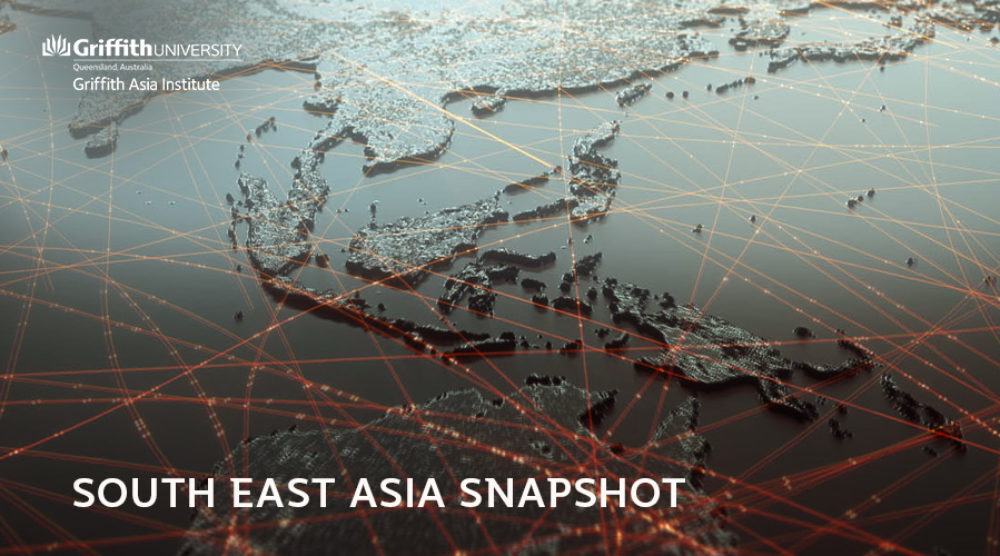The outcomes of the G20 Summit
The Group of 20 (G20)—comprised of 20 of the world’s largest economies—held its leaders’ summit which concluded on 16 November 2022 in Bali, Indonesia. Leaders met to discuss many significant events impacting the global economy.
The Russia–Ukraine conflict was a pressing issue during the G20 Summit. Most G20 leaders stepped up to pressure Russia to stop the war and end the world’s economic upheaval while warning Russia of the possible use of nuclear weapons of any kind against Ukraine. A joint statement was produced in which most G20 leaders condemned Russia while emphasizing the global economic impacts resulting from the conflict. Putin did not attend the summit, while Foreign Minister Lavrov—who attended in Putin’s place—left the summit a day ahead of schedule. There was also an emergency meeting held in response to a missile explosion in Poland that killed two people, however, it was unclear whether the missile was from Russia or Ukraine.
The Indonesian President called on all members to work collaboratively to end the war; however, tension arose during the meeting as the Ukrainian President expressed his discontent with organisers for allowing Moscow to participate in the meeting. Ukraine’s President also called on the G20 to endorse his 10-point peace plan while addressing the meeting as the G19, intentionally excluding Russia. The Russian Foreign Minister believed that the joint statement was politicised by the West-led allies and was pushing countries to condemn Russia’s action in Ukraine. The United States and China stressed their opinion on the non-use of nuclear weapons in Ukraine citing that nuclear war should never be used as no one will win from such action. China did not label it as a war but called for global unity to resolve the issue peacefully.
On the war in Ukraine, the Russian Foreign Minister believed the summit showed the European leaders’ mixed stance as they opted for peace but approved military assistance to train 15,000 Ukrainian personnel. Some believe China and India are distancing themselves from Moscow to prevent diplomatic isolation following Russia’s invasion. While it is not expected that this forum can solve all of the pressing global concerns, the meeting has brought global leaders to the table to give attention to many of these issues.
Apart from the Ukraine war, the G20 summit also focused on the global economy in which leaders agreed to carefully observe their interest rates to prevent the increase of currency volatility resulting from the impact of the pandemic and the war in Ukraine. In the joint declaration, the G20 leaders agreed that the world is facing rising inflation, forcing their central banks to review their monetary policy to maintain balance. The WTO warned that some countries’ economies could face recession resulting from the Ukrainian war, rising food and energy prices, and inflation. Some even believe Japan, in this context, is trying to shore up currency to battle the strong dollar to prevent the sharp fall of the yen.
On climate change and food security issues, G20 leaders pledged to address food insecurity by supporting the Black Sea Grains Initiative and called for a more responsive action to address this issue. The deal will extend for another 120 days from 19 November 2022, the original date of the prior deadline agreement. This will allow more than 11 million tons of grains and food to be exported to various parts of the world, despite the war in Ukraine, so as to ensure the stability of the world’s supply chain. Leaders also reaffirmed their commitment to limit the global warming temperature to 1.5 degrees Celsius and to slow down the use of coal as it was acknowledged that extreme weather fluctuation will be more common if further action is not taken. This sent a signal to COP27 to pursue urgent, practical actions to manage the changing climate.
On food security issue, the UN applauded the agreement on the Black Sea Grains Initiative and the expressed commitment to remove all hardships to facilitate more exports of grains in order to avoid food crises. Despite that, civil society groups still questioned the practicality of this initiative to stop hunger as there was no precise plan or actions. Further on climate action, some believe that some countries will intentionally avoid mentioning temperature targets in their commitment statement. India, the world’s second-largest coal consumer, urged countries to decrease the use of all fossil fuels—not just coal—which was agreed at COP26.
The summit also featured many bilateral meetings including the China-US bilateral meeting. During their candid discussion, both leaders agreed to strengthen senior officials’ ties, to maintain bilateral communication on matters such as health and food security, climate change, and economic stability and even spoke on issues in Taiwan. The US expressed its stance on the one-China policy but object to Beijing’s potential future forceful takeover of Taiwan that can undermine peace in the region. On the war in Ukraine, the two leaders also agreed on the non-use of nuclear weapons of any kind and – although China declined to call the Russian invasion in Ukraine a war—encouraged peace talks between disputants. Other bilateral meetings included discussions between the US and India, and China and Australia, among others.
The Chinese President encouraged both the US and China to find the right path for healthy bilateral relations while the US President stated that the United States and China need to put aside their differences and competition. While some saw the bilateral meeting as the first step in the right direction toward future peace and stability, some suggest that competitive differences still exist.
Not only did the G20 Summit unveil many issues that needed the world’s attention at the highest level, but the meeting reaffirmed how important dialogues are in resolving matters. Despite differences shown during the meeting, leaders were able to signal possible platforms of further cooperation on the issues highlighted above following this year’s G20.
Sovinda Po is a Research Assistant at the Griffith Asia Institute.








